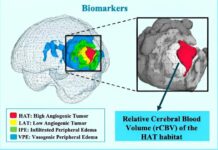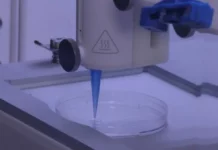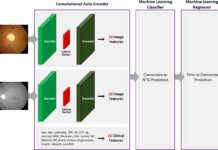With robot technology on the rise, we can find these AI machines everywhere, from restaurants to factories. Scientists are also rapidly incorporating them as useful medical technology, with robots even performing small surgical procedures under supervision.
A newer innovation has come to light recently via researchers from the University of Strathclyde and Heriot-Watt University. Funded by the UK Government City Region Deal, the researchers have now created a telepresence robot that can help doctors remotely connect with their patients from anywhere in the world.
The robots can perform in two modes. A semi-autonomous mode uses inbuilt sensors that can monitor the patient and provide their data to physicians around the clock.
When needed, the physician can completely take over the robot’s controls to see and talk to their patients directly. Moreover, they can even move to different rooms and manipulate the robot’s arms to aid diagnosis or facilitate emergency response.
The researchers showcased these features in a demonstration for UK minister Iain Steward at the National Robotarium at Heriot-Watt University.
Battling Alzheimer’s using Robots
While the robot’s versatility may be used to help doctors treat patients with many different diseases, the researchers are currently focused on its application for patients suffering from a particularly serious neurologic disease: Alzheimer’s.
Alzheimer’s disease is a progressive, degenerative neurologic disorder, characterized by loss of memory and cognitive functions.
Currently, there is no definitive cure for the disease, and physicians can only prescribe medications to slow down its progress. Due to this, Alzheimer’s patients require constant care and monitoring, making it the perfect condition for the researchers to test out their new robotic technology.
According to Dr. Mario Parra Rodriguez, who is a Senior Lecturer in Strathclyde’s School of Psychological Sciences & Health:
“The experience of inhabiting a distant robot through which I can remotely guide, assess, and support vulnerable adults affected by devastating conditions such as Alzheimer’s disease, grants me confidence that challenges we are currently experiencing to mitigate the impact of such diseases will soon be overcome through revolutionary technologies.”
After conducting a successful demonstration, the research team now plans to conduct activities between doctors and patients to check the technology’s use. Subsequently, they will collaborate with Blackwood Homes and Care to start a pilot study among patients in their care.
Source: The University of Strathclyde Glasgow
https://www.strath.ac.uk/whystrathclyde/news/remoteassessmentofhealthbyrobotsfromanywhereintheworld/




